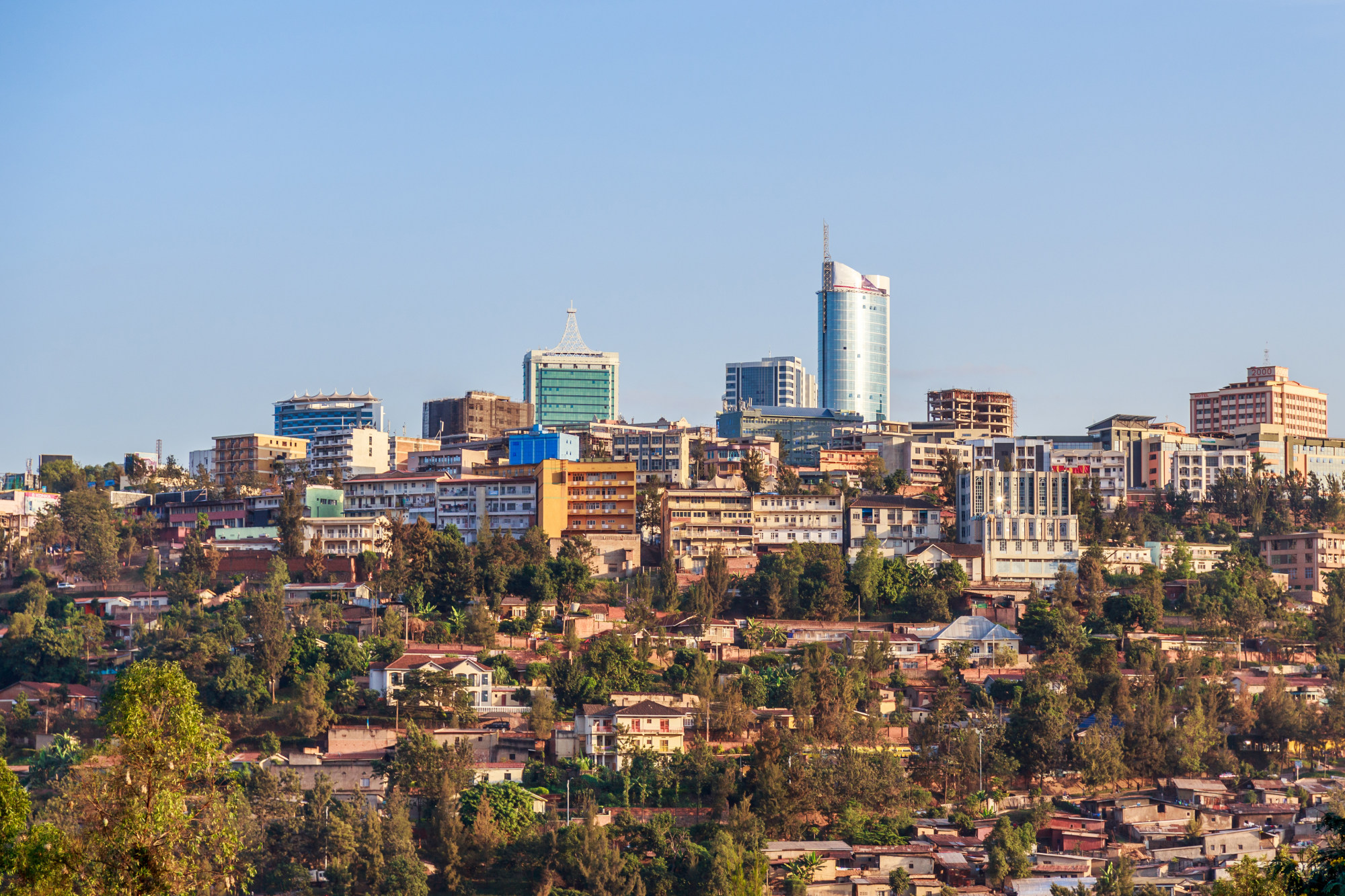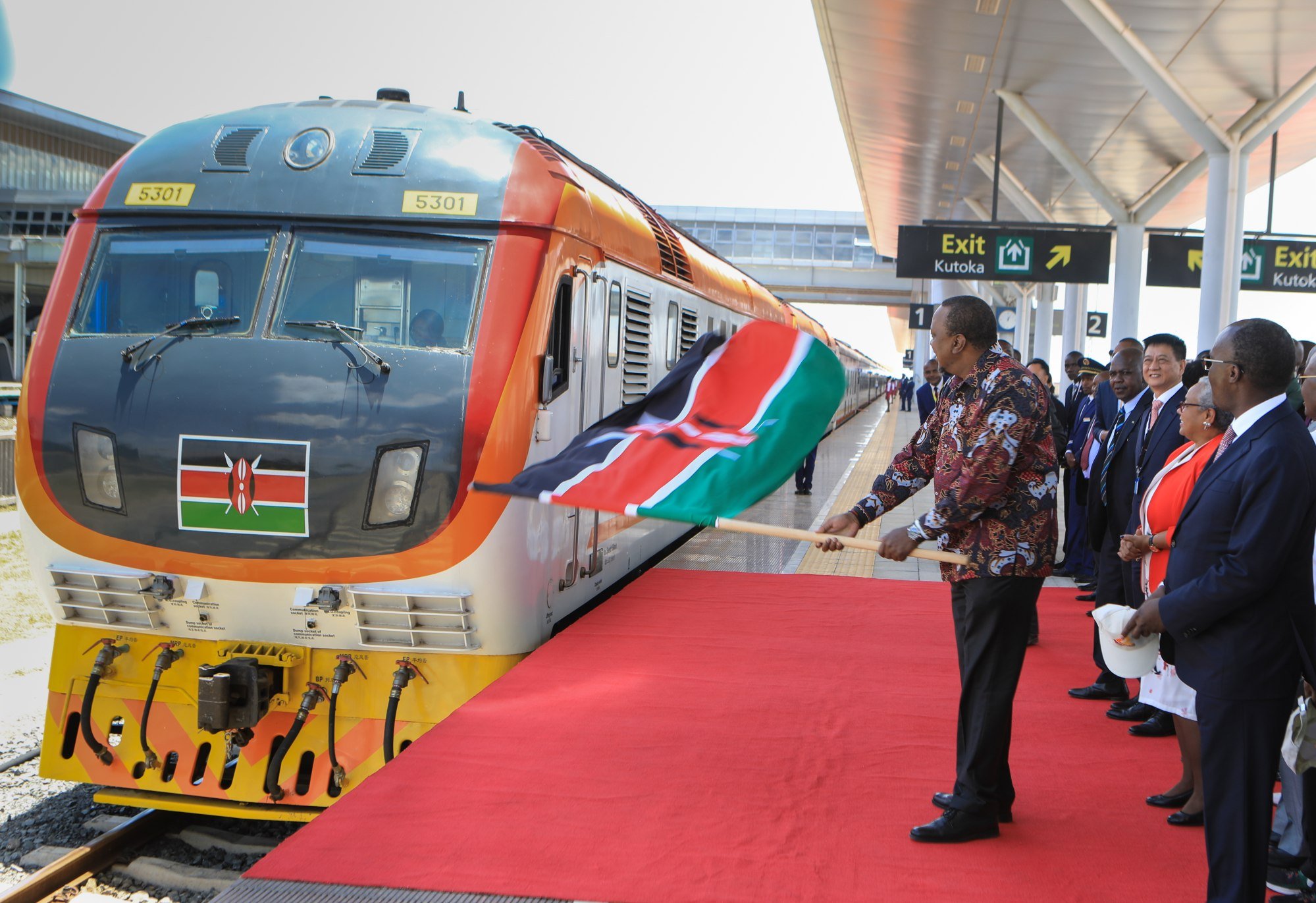
Chinese construction firms in Rwanda see shrinking slice of pie as India, Turkey enter market
- Chinese construction companies also have to compete with their mainland rivals when bidding for Rwandan projects
- One strategy these companies can adopt is to expand into bigger African markets such as Kenya, a business consultant says
Chinese construction companies in Rwanda are facing stiffer competition from foreign firms and declining profits, with fewer development projects available for bidding since the pandemic.
The decline in the number of projects in Rwanda resulted from a government reallocation of Covid-related resources to the healthcare sector, said Tang Hai Ping, 34, a project manager of Chinese construction firm Stecol Corporation (Rwanda).
Chinese companies like Stecol had ventured into Rwanda following its government’s drive to launch various development projects in recent years, with help from China.
In the last two decades, China has funded 40 infrastructure-related projects totalling US$1.1 billion in the African country, ranging from hospitals to a hydropower plant, said Kyra Solomon, 26, a programme manager of US-based research project AidData’s Chinese Development Finance Programme.
Mandarin learning boom in Rwanda as China’s growth fuels job prospects
Emmanuel Godfrey, a 24-year-old Liberian founder of strategic consulting firm Dobia Consulting in Kigali, said Rwanda’s construction industry lacked the expertise to handle such projects, which had been outsourced to companies from countries such as China.
But Chinese firms are not the only construction players who are involved in Rwanda’s development projects. In recent years, Turkish and Indian rivals have also vied for and won several projects in the country.
The number of bidders per contract depends on a project’s size, with smaller ones each attracting around four to five companies and larger ones each drawing more than 20 competing bids, Tang said.
Stecol’s latest project in Gitega, a suburb of the capital Kigali, is worth some US$16 million and attracted bids from another Chinese company and two Rwandan firms.

Since 2007, the Indian government has been financing projects in Rwanda, including infrastructure works, mainly through its Exim Bank. Such projects have typically involved Indian companies.
Exim loaned US$80 million to the Rwandan government to build the Nyabarongo dam, which was constructed by Indian companies Angelique International and Bharat Heavy Electrical. The bank has extended loans totalling US$547.7 million to Rwanda to date, according to its website.
More than 100 Indian construction-material manufacturers have invested in Rwanda so far, said Godfrey, whose consultancy works with companies venturing into Africa.
Among Turkish construction firms that have been involved in Rwandan projects is Summa, which has built the Kigali Convention Centre and BK Arena, indoor spaces for sports, concerts and conventions. It is currently building the Amahoro National Stadium, also in Kigali.
China defends Africa investments as it gears up for belt and road forum
Gong Wen, 50, executive director of China Star Construction (Rwanda), said: “When there are only a few companies here, each player would get a bigger slice of the market. But as more firms enter the picture, each of our slices becomes smaller.
“Competition worsened during the pandemic as the country went into lockdowns. Projects were even fewer and ongoing ones came to a halt,” he added.
Growing competition for major projects has resulted in Stecol taking on only two to four projects a year, down from five to seven when it first entered the Rwandan market, Tang said.
AidData’s Solomon noted that while the number of Chinese companies involved in China-backed projects in Rwanda was around 10 to 12 in the last two decades, planned projects had declined from 25 in 2000-2013, to 15 from 2014 to 2021.

Chinese firms also compete fiercely among themselves when they bid for projects financed by their government.
When Shanghai Construction Group won an US$80 million contract to renovate and expand the Masaka Hospital in Kigali, it beat off stiff competition from more than 30 Chinese bidders. Spanning more than 56,000 square metres, the China-funded project involves the construction of hospital buildings such as a new outpatient department, wards and office areas.
Project manager Cheng Cong Yin, 56, said: “The scale of this project is huge, and the Chinese government provides financial support. It is only natural that more companies bid for it, as it will drive revenue and profits.”
To gain an edge over their domestic and foreign rivals, Chinese companies would often bid for projects at lower prices, resulting in a decline in their earnings or even losses.
For Stecol, profit from each project in Rwanda has fallen in the last two years. “Sometimes we have to lower our bidding price by so much that we make losses,” Tang said.
West Africa is new focus for Chinese investors amid loans decline
China Star’s profit in 2022 from all its Rwandan projects fell by a whopping 90 per cent to around US$150,000, from US$1.5 million in 2019, Gong said.
Despite the stronger competition in Rwanda, venturing into Africa is a good strategy for Chinese companies looking to expand their overseas footprint, said Dobia’s Godfrey.
Nonetheless, Rwanda is still a small market and Chinese companies should not expect many development projects there, compared with other bigger countries on the continent, he said. “The government is trying its best to develop the country and its people but there is still a challenge as the majority of the population is still living in poverty.”
Godfrey advised companies to venture into neighbouring countries such as Kenya, where there are more private construction projects.
One company that is exploring diversification in Africa is China Star, which is looking to tap Tanzania for its projects in Rwanda to save on shipping costs.

Shipping materials from China to landlocked Rwanda can be very costly, Gong said. With a base in Tanzania to manufacture construction materials, transport fees become cheaper due to proximity, he added. “We are moving up the supply chain as it helps lower costs and safeguard ourselves from any [global] economic setbacks.”
Despite the various business challenges, Rwanda remains a popular destination for Chinese companies, said Samuel Abikunda, 35, commercial counsellor of the Rwandan embassy in China.
Some 20 Chinese firms in the mining, manufacturing and healthcare sectors expressed their interest in venturing into Rwanda during a business roadshow in Changsha in July, Abikunda said.
“It’s a win-win situation for both countries, as the [Rwandan] employment rate increases and Chinese companies get to expand their footprint and grow profits.”
Chong Xin Wei is a final-year communication studies student at the Nanyang Technological University’s Wee Kim Wee School of Communication and Information in Singapore. Her report on Chinese construction companies in Rwanda is part of the school’s Go-Far overseas reporting programme.

